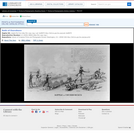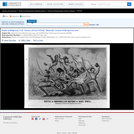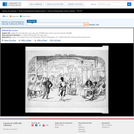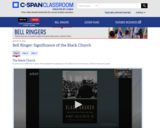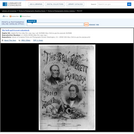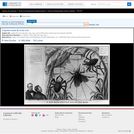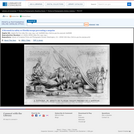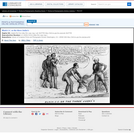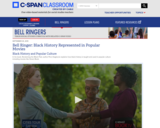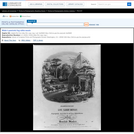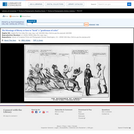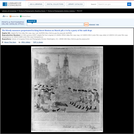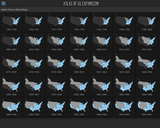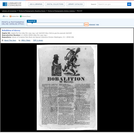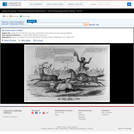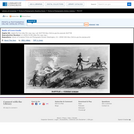
An attack on James K. Polk's attempts to undermine Winfield Scott's military efforts and reputation through his handling of the Mexican War in April 1847. Shortly after Scott's victory at Cerro Gordo, Polk dispatched State Department official Nicholas Trist to Mexico to negotiate peace with the Mexican government. The artist views the move, as did many contemporaries, as motivated by political concerns about the Whig general's presidential ambitions. Scott, on a large hill at right, offers a steaming plate of soup to departing Mexican commander Santa Anna, who rides away on horseback. (For the soup allusion see "Distinguished Military Operations," no. 1846-15). From a ravine behind Scott, Polk goads Trist as he aims a water hose at the general. The hose is fueled by a pump operated by two boys in the background. In the distance American troops engage the Mexicans on the hills near Cerro Gordo. In the upper left appears the dialogue: Scott: "General Santa Anna!! do stop and take 'a hasty plate of soup?'" Santa Anna: "I thank you, Sir, your soup's too hot-I must be off!" Polk: "Trist, take care & cool 'old Hasty's' soup, before "our friend" meets him again." Trist: "Your Excellency will pardon me, but I've tried in vain to cool 'Old Hasty's' soup." Polk: "Then put out 'Old Hasty's' fire, or "that fatal soup will burn our fingers yet!" Trist: "Your excellency would do well to send 'Old Hasty' home and give "our friend" 'Pillow' for his Comfort." The last reference was to Gen. Gideon J. Pillow, an incompetent but a favorite of Polk, whose antagonism toward Scott was public knowledge, particularly after Cerro Gordo.|Title appears as it is written on the item.|Weitenkampf, p. 89.|Forms part of: American cartoon print filing series (Library of Congress)|Published in: American political prints, 1766-1876 / Bernard F. Reilly. Boston : G.K. Hall, 1991, entry 1847-2.
- Subject:
- History
- U.S. History
- Material Type:
- Diagram/Illustration
- Primary Source
- Provider:
- Library of Congress
- Provider Set:
- Library of Congress - Cartoons 1766-1876
- Date Added:
- 06/13/2013
